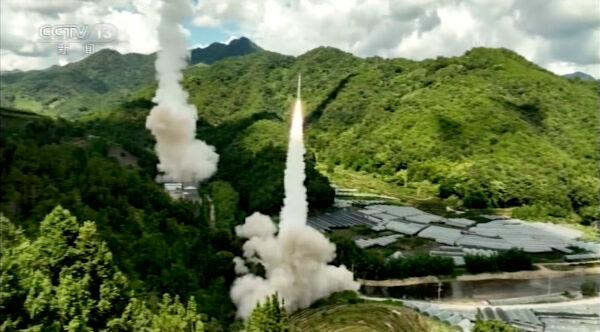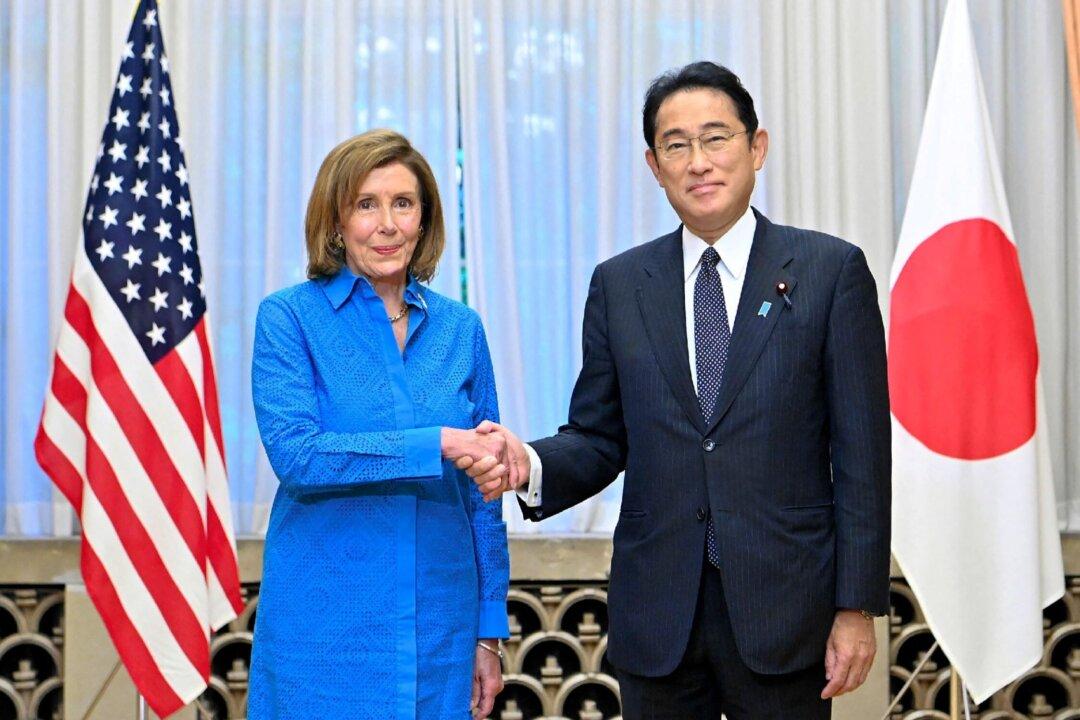The United States will “not allow” China to isolate Taiwan, U.S. House Speaker Nancy Pelosi (D-Calif.) said Friday during her Asia trip that has infuriated Beijing.
Pelosi made the remarks in Tokyo, Japan, on the final leg of her Asian tour after the Democrat and five other members of Congress arrived in the capital city late Thursday, having previously visited Singapore, Malaysia, Taiwan, and South Korea.
“They may try to keep Taiwan from visiting or participating in other places, but they will not isolate Taiwan by preventing us to travel there ... We will not allow them to isolate Taiwan,” Pelosi said.
Pelosi stressed that the visit to Asia was “not about changing the status quo” in the region.
Pelosi also called the self-ruled island “one of the freest countries in the world” and “a great democracy with a thriving economy.”
When asked how she feels her trip to Asia will impact relations between the United States and China, Pelosi said that while it is important that communication is maintained between the two nations, “if we do not speak out for human rights in China because of commercial interests, we lose all moral authority to speak about human rights any place in the world.”

Human Rights Issues
The lawmaker noted that while China has made progress in some areas, it is still a country of “contradictions” and pointed to human rights issues such as reports of mass genocides.The Chinese Communist Party (CCP) has been accused of committing genocide and crimes against humanity against predominately Muslim Uyghurs and among other minority groups such as practitioners of Falun Gong, also known as Falun Dafa.
“Again, it isn’t about our visit determining what the U.S.-China relationship is. It’s a much bigger and longer-term challenge, and one that we have to recognize that we have to work together in certain areas,” Pelosi said.
The Chinese regime views Taiwan as part of its territory and strongly opposes Pelosi’s visit and other governments or international organizations forming ties with Taiwanese officials.
Pelosi’s comments came just a day after China ramped up military activity near Taiwan; firing a string of Dongfeng ballistic missiles into waters near Taiwan on Thursday, with five reportedly landing in Japan’s exclusive economic zone (EEZ).

The missile launches, which are said to be in retaliation to Pelosi’s visit to the self-ruled island, were reported by Taiwan’s Ministry of National Defense and prompted the Taiwanese ministry to activate its defense system and strengthen its combat readiness.




